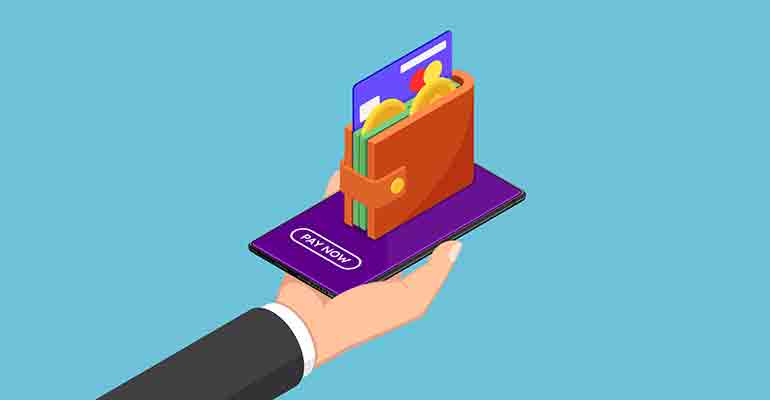
By admin January 25, 2022
An e-wallet is a digital wallet used to store electronic money. It doesn’t only provide the same function like conventional wallets, an e-wallet also has more functions like peer to peer fund transfers (Bitcoin for example).
The rapid development of internet technologies have also created new payment tools with features that are significantly different from traditional brick-and-mortar payment methods. One of them is an e-wallet. A new generation of mobile wallet, which provides an easier and faster way for users to perform online transactions while they go about their daily lives.
In accordance with the development of information technology, more and more people are using electronic networks to perform financial transactions such as fund transfers, payment and business transactions. Electronic networks are a reliable way for people to manage their money and digital wallets have become an indispensable electronic tool in this regard. Digital Wallet
Virtually all major banks and many ecommerce websites such as PayPal now provide such services to allow people to load funds into an online account linked to the site and to pay for goods and services with those funds.
In the world of internet banking, consumers can not only make payments but also transfer money between individuals or companies without the need for cheques, credit cards or other physical methods of transferring value.
When using a digital wallet to make payment or fund transfers, there is no longer any requirement to provide credit card details to the merchant site before one can complete the transaction.
The digital wallet is an account in which encrypted digital or electronic monetary units are stored. Digital wallets are also known as e-wallets, ewallet, e-cash purses, etc…
They have many advantages in comparison with traditional payment methods: fast transactions, safety, simple management of electronic money, etc…
One of the most popular digital wallets is PayPal. It was founded in 1998 by American computer programmer Peter Thiel to facilitate the exchange of money via the Internet between individuals and businesses without necessarily using a physical bank account. The system works through an online platform that allows users to conduct transactions with each other.
Digital wallets are typically hosted either by the merchant site or ecommerce platform where it is used, or by independent operators who run an online payment service business (PSB) to supply wallet services to merchants.
The main distinguishing feature of digital wallets is the lack of physical form and therefore no risk of carrying cash around. Therefore, they are especially useful to people who do not have access to traditional banking services. They can be used by anyone with an internet-enabled computer or smart phone.
Digital wallets are more than just “online accounts”. They can offer unique capabilities, such as peer-to-peer money movement and currency conversion functions. As of 2015 digital wallets were still in their infancy, having not reached mainstream use.
The typical digital wallet application is a browser-based or mobile app that allows users to register for an account online or using the mobile phone. The Digital Wallet Provider then establishes links with payment service providers in order to encompass all possible payment types for the customer.
Digital wallets are designed to give consumers access to ecommerce through an electronic device. They are also designed to make online transactions simpler and more efficient, thus streamlining the process of buying goods or services via Internet i.e. removal of physical cash from the transaction.
Typically digital wallets are considered to be one-stop shops for all your shopping needs, providing a fast transaction process as well as access to a range of different payment options.
Digital wallets can trigger notifications through text messages, emails and push notifications. These digital wallet alerts include purchase confirmations and receipts, balance updates and other alerts related to specific transactions if required.